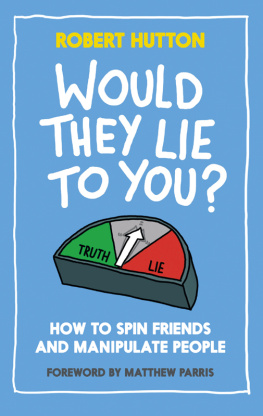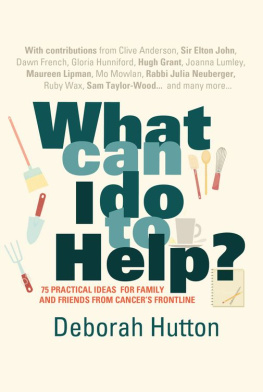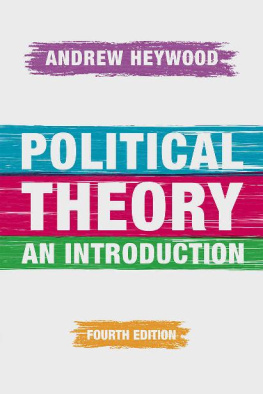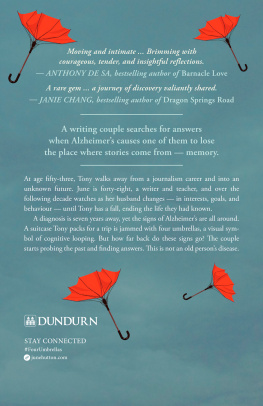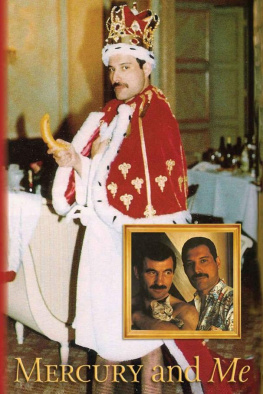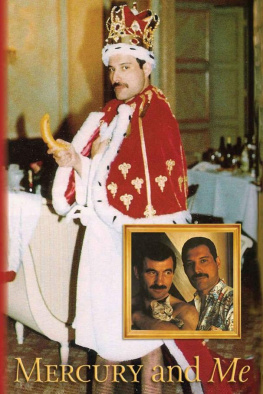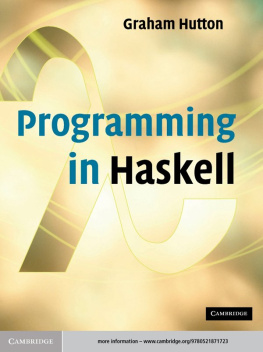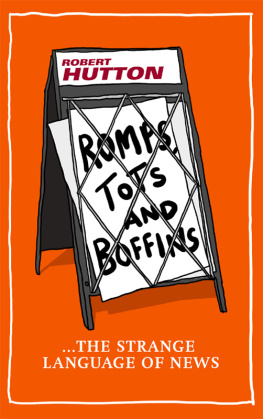Praise for Romps, Tots and Boffins: The Strange Language of News
Never has the weird language of headlines been so wittily defined.
Libby Purves, Books of the Year, The Times
Robert Hutton... has set himself up as the Dr Johnson of this strange, widely read, hardly spoken, language.
Matthew Engel, Financial Times
A right romp
Paul Dietrich, The Metro
A fascinating code-breaker of the clichs, inanities and banalities which fill our newspapers. Or, if you prefer, News Secrets Revealed Leaving Bosses Shamefaced. Im not sure I dare write another word.
Nick Robinson
Finally, I understand what my fellow journalists are writing about.
Simon Hoggart
Im loving a little book just out by my fellow political journalist Rob Hutton. Its... so much more than a hilarious compendium of the ghastly clich to which our trade is prone.
Matthew Parris, The Times
Long journey to Lib Dem Conference enlivened by Robert Huttons journalese book, Romps, Tots and Boffins hilarious, wonderful and very true a mini classic.
Andrew Sparrow, Guardian Politics blogger
Very funny new book by Robert Hutton a must-read page-turner.
Iain Martin, former editor of the Scotsman and Scotland on Sunday
For readers, it promises to explain what journalists really mean. And for journalists, it also provides a guide to some of the hackneyed, arcane and clichd phrases that are probably best avoided.
Axegrinder, Press Gazette
An essential guide to finding out what you are reading about. Some people may dismiss this as a loo book but, actually, its so much more.
Ann Treneman, The Times
An amusing dictionary of arcane hack-speak.
Michael Deacon, The Telegraph
The world of journalism was rocked to its foundations last night as a top newsman claimed to have discovered the secret of journalese.
John Rentoul, The Independent

At one level no one trusts politicians, and politicians are obliged from time to time to conceal the full truth, to bend it and even distort it, where the interests of the bigger strategic goal demand it be done Without operating with some subtlety at this level, the job would be well-nigh impossible.
TONY BLAIR, A JOURNEY
I wasnt lying. You didnt ask the correct questions.
TORONTO MAYOR ROB FORD
CONTENTS
FOREWORD
BY MATTHEW PARRIS
The best satire tells us things we know in our bones already. Holding up for scorn absurdities of which we were already aware, it illuminates them in all their preposterousness. C. Northcote Parkinson wasnt the first to observe (in his famous 1950s Parkinsons Law) that work expands to fill the time available; mankind had long noted that the human race love to busy themselves with pointless duties. Nor was it he who found out the reasons for this. The reasons are obvious: anyone who studies human nature can guess.
No, Parkinson simply said it so much better and with such elegantly ruthless humour and such wicked examples. The deliciousness of satire is not discovery but display.
Rob Hutton has understood this. As a working political journalist he knows better than most the myriad ways in which human beings avoid telling the truth. He collects dissimulations as a lepidopterist collects butterflies, and this book is, not least, a magnificent anthology. But to the pleasures of collection he adds wit: Huttons translations from what people say to what they mean are ten-chuckles-a-minute.
Would They Lie To You? is satire, not sociology. Were the book enquiring rather than scornful, Hutton might have remarked on something rather intriguing in his collection. Amid a wealth of half-truth, euphemism and evasion, you will find very few downright lies here. Out-and-out falsehood is the exception rather than the rule.
There is a reason for this. Human beings even bankers, lawyers and politicians shrink from what Shakespeare called the Lie Simple. We will duck and dive and twist and turn ourselves into the most fearful knots in order to avoid telling a complete porkie. In a curious way, its a matter of honour with us.
Many, many years ago, as a young officer in the Conservative Research Department, it was my occasional duty to put Tory politicians and would-be politicians through their paces by engaging with them in mock TV debates. Conservative Central Office would film these jousts, after which a professional tutor would take them through the recording and tell them how to improve their performances.
I was once asked to play the part of a corrupt Third-World despot, with whom a Tory hopeful did battle in our mocked-up TV studio. He came equipped with all the evidence, all the facts and figures, to prove my villainy.
But my strategy defeated him. I decided simply to lie. I did not fudge or hedge, attempt explanations, downplay the horrors or make excuses. I didnt even try to change the subject. I just flatly denied every accusation he threw at me. I said it was all made up by my enemies. I am the father of my people, I kept assuring him, they love me. Ask them. My poor assailant stared at me open-mouthed, and finally fell silent. He longed for a half-truth or a something-short-of-the-truth or a not-quite-the-truth to expose; but I gave him only the Lie Simple. I never gave him his Aha! moment.
Study Rob Huttons collection which follows. Note how much of the most infuriating dissimulation consists in avoidance tactics, or euphemisms, or sly ambiguities. Laugh at how often his cast of non-apologisers pretend to say sorry, or dont quite say it, or apologise for something different; but ask yourself, too, why they dont just lie: what stops them simply feigning a humiliating admission of their error?
Its because we have our pride. Its because we cling desperately to the tortured grammar and awkward vocabulary that might be just but only just reconcilable with the truth. We shrink from the barefaced lie. Lying hurts, and only a psychopath feels no pain. This is why polygraph lie detectors work. Normal people sweat. The complete answer to the question Would they lie to you? is No, not exactly lie.
And it is this avoidance technique, this verbal dance, a dance with the truth that falls short of telling the truth, a dance with falsehood that falls short of the Lie Simple, that yields the rich entertainment you will find in the pages that follow.
INTRODUCTION TO THE TEXT
When my children started school, I was inevitably reminded of my own schooldays, and the strong sense Id always had that I must have missed a day early on when someone explained what was going on. Not just where the toilets were, but all the unwritten rules that explained things like why some children got to pick the teams or how some people got to start crazes while I joined in as everyone else dropped them. This sense has never entirely left me. In adolescence, it was clear that the definition of cool behaviour had been agreed while I was out of the room. Even in adulthood, it has been hard to escape the nagging sense that I missed a vital briefing.
Which is why I was so relieved when the document that follows fell into my hands. I dont know who sent it, or why they chose me, but it arrived on my desk shortly after Id been at a government seminar. Id been talking about journalese, the language of news. After my usual spiel about how newspapers use journalese to cover up the gaps in their knowledge, and to make things sound more exciting than they are, I mused aloud that this wasnt so different from what companies and governments must do, except that they are trying to make things seem less exciting than they are. I think I wondered what the word for it would be, perhaps officialese.

